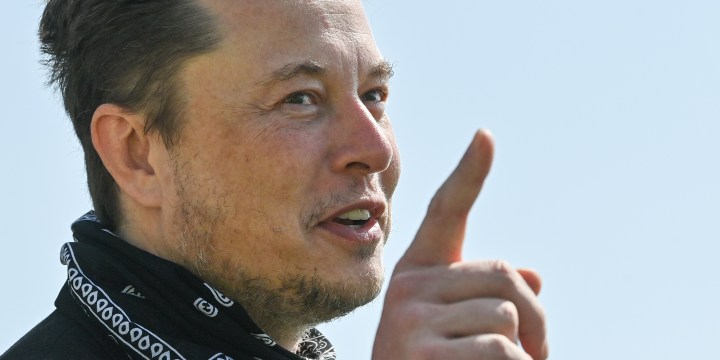AFTER THE BELL
It’s not rocket science; Elon Musk would probably make a terrible media mogul

The mechanics of rocketry or cars might be complicated, but at least at a theoretical level it is conceivably specific and clear. The media is a slippery fish.
Like a lot of people in the world, I’m in absolute awe of Elon Musk. He is just a fabulous phenomenon: a businessman who is funny, a visionary who is modest and self-deprecating, a tech nerd who has blazed a path through industry, after industry, after industry. And he loves The Restaurant at the End of the Universe. What’s not to like?
Yet, if he has one weakness, it’s that his understanding of the media is kinda banal. This seems like a strange thing to say about a man who has a legion of devotees on almost every platform imaginable.
About rocketry or mechanics or tech, I would never, ever hazard the slightest critique of Musk, because the chances are I would be stone-cold wrong. But, as it happens, I have spent my life in the media, so it is just possible I might have picked up a few pointers here and there.
So, for example, in the early days of Teslas becoming involved in accidents while the self-driving feature, called Autopilot, was switched on, Musk would rail against the media for highlighting these events, and not bothering to mention how many ICE (internal combustion engine) cars have been involved in accidents in the same period. His understanding is completely in line with what people generally feel about the media; the media highlights the bad. Musk, with some justification, would point out that the self-driving feature on Tesla cars does not have to operate perfectly; it just has to operate, on average, better than humans. In South Africa, that would not be a very high bar to surmount.
But anyone who has an inside knowledge of the media can see the problem instantly: novelty is a news value. In other words, the potency of any given news item increases exponentially corresponding to its originality. News people have phrases to express these ideas which we drum into newbies: “dog bites man” is not news; “man bites dog” is news.
The reason this is such an established idea is not because news types are by nature pessimistic or depressive or disaster junkies (though lots are, let’s face it), it’s because a lifetime of measuring what people read, as opposed to what they say they would like to read, shows the simple truth that news impact correlates with the unusual, with quirkiness, with high emotional content, with danger and with consequence. To put it another way, news consumers don’t want to know about the road, they want to know if there are potholes.
So, having this nugget parked in the back of my brain, my heart sank when I saw Musk had made a bid for Twitter. The mechanics of rocketry or cars might be complicated, but at least at a theoretical level it is conceivably specific and clear. The media is a slippery fish; it gyrates and mutates; it follows trends and then rejects them; it follows fashions and then changes its mind. It is a moveable feast.
It’s another common misunderstanding that truth is absolute. Of course, people who want to twist the truth, will claim truth is subjective. That is not the issue; they are manipulators posing as philosophers. And, of course, our aim in the media is to reflect the full truth.
But doing so isn’t always consequent on total openness, as Musk claims; it is being open to many views that are credible, including those you might disagree with, but with a sense of knowing what might just be bonkers rubbish. And you don’t print that because the most precious and ephemeral thing in news is your credibility. This is called “editing” and a small mountain of very important people in the news media sit behind the presenters and take great care of this for enormously important reasons.
Musk, and many other media personalities, tend to think that hearing all sides solves the credibility problem. Partly true, but if only it were as simple as that. Sometimes, “he said, she said” news presentation takes you further from the truth rather than closer to it. Knowing the difference is the key.
Musk has put his bid for Twitter on hold, presumably to try to get a better price, on the pretext that there are more bots than the platform claims. But I really hope this means the deal will not go through, because I suspect he may be a terrible media mogul for the very reason he is a physics wunderkind. BM/DM
[hearken id=”daily-maverick/9472″]


















 Become an Insider
Become an Insider
Comments - Please login in order to comment.